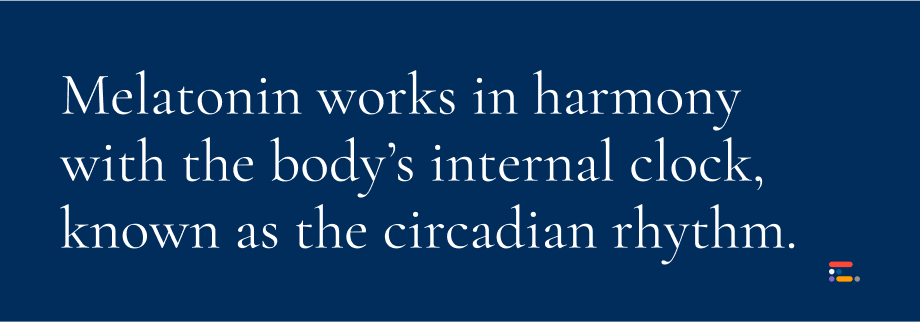We use cookies to enhance your browsing experience and analyze the performance of our website. By clicking Continue, you agree to the use of cookies. For more information, please see our Privacy Policy or update your Cookie Preferences.


In today's fast-paced world, getting a good night's sleep can sometimes feel like an elusive dream. From stress to screen time, there are many factors that can disrupt a healthy sleep-wake cycle. However, there's a natural hormone that plays a crucial role in regulating our sleep patterns - melatonin. Let's learn more about how to optimize melatonin for more restful sleep and ultimately better health!
Melatonin is a hormone, or chemical messenger, produced by the pineal gland found in your brain. It's often referred to as the sleep hormone because it regulates natural sleep and wakefulness. Melatonin is made when it's dark and helps your body wind down and prepare for sleep.
Melatonin works in harmony with the body's internal clock, known as the circadian rhythm. This rhythm dictates when we feel awake and when we feel sleepy based on cues such as light and darkness. When the sun sets and darkness falls, the pineal gland releases melatonin into the bloodstream, helping us feel drowsy and ready for bed.1

Genova's Sleep Hormone Test is a great place to start. Carefully timed, at-home saliva sample collections can shed some light on whether melatonin imbalances are to blame for poor sleep, daytime drowsiness, or general fatigue.
While melatonin supplements are available over the counter, there are also natural ways to support melatonin production in your body.
Melatonin plays a vital role in regulating our sleep patterns and promoting restful sleep. By understanding how melatonin works and incorporating lifestyle habits that support its production, you can take proactive steps towards achieving better sleep and overall well-being. Remember, if you're considering melatonin supplements, it's always best to consult with a healthcare professional to determine the right dosage and timing for your needs.
Check out this episode of The Lab Report podcast where we discuss the role of melatonin in health and sleep: Is Melatonin a Master Hormone?.
This article is meant for educational purposes only and is not meant to be misconstrued as medical diagnosis or treatment advice.